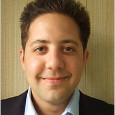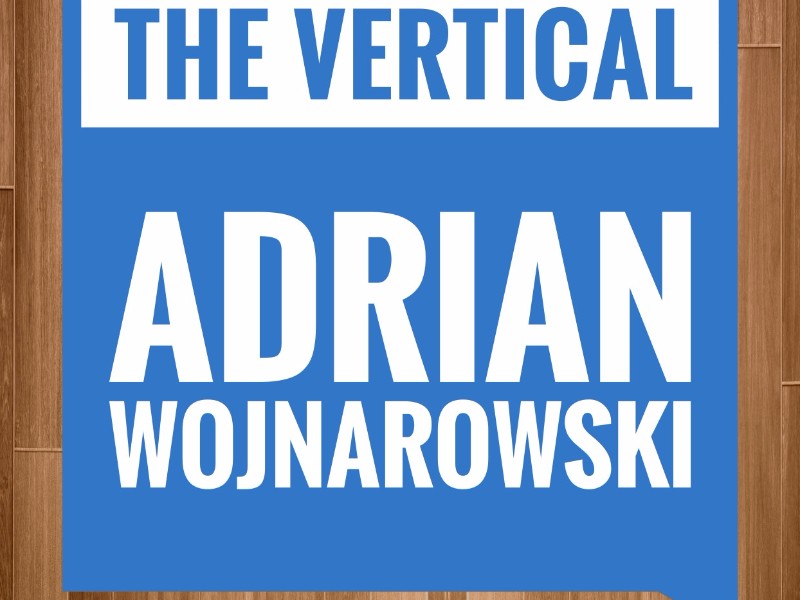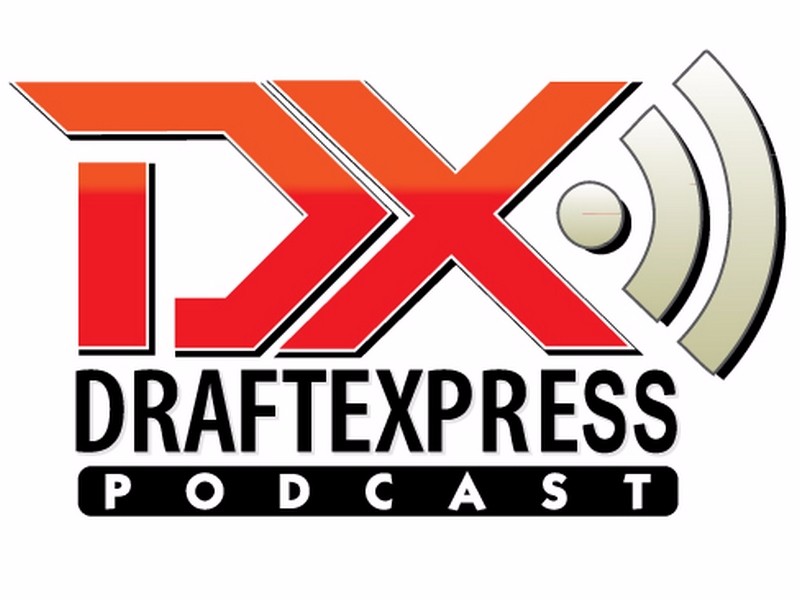Jonathan Givony: Hey Maurice, thanks for agreeing to do this. Where are you at right now?
Maurice Evans: Right now I'm in San Antonio, but just for the moment. I'm living in my apartment in Sacramento. I'm just visiting my agent and working out with some of his new guys.
Jonathan Givony: So what are you doing this summer? Any plans for the offseason?
Maurice Evans: Sticking with my offseason regimen. Just working out with some guys who are my friends, that are pros, and we just work out. I worked out in the past with KG, with one of my good buddies Chris Owens, and we work with coach [Bob] Hill [former coach of the Spurs], who is an NBA accredited guy, just a great teacher. So I work out with all of Roger's draft picks, MaseDesmond Mason that is, we all just get together and we work out against one another.
Jonathan Givony: So you're working out with Joey Graham, and Stevie Graham, and all those guys? What do you think of them?
Maurice Evans: Yeah I'm working out with them this summer. I think that both of the Graham brothersJoey has all the notoriety right now, but Stevie is really skilled as well. I'm sure they are going to do really well in this year's draft. It's tough to see a player [Stephen Graham] with all that skill and potential get so boxed into a system. I think that the Oklahoma State system--even though coach Sutton is an excellent coach sometimes you see a player get so much better when they can get out and they are free and they can show that to people when they workout and get better. I think those are two guys that are going to do well in the draft.
Jonathan Givony: How would you compare where you were at coming out of college as a player to where those two guys are at right now?
Maurice Evans: I think that we all have similar skills coming out of school. I also had accomplished a lot in college, in terms of scoring points, accolades, things of that nature. I had that in my resume as well. But what I think is so helpful for them now for example is that they are working with a pro who is helping them, showing them things that they need to know for individual workouts, and then for the NBA. They will have a better understanding. I didn't have anyone showing me all these small things that were going to be useful when I got here. I didn't know how difficult it was to get drafted and go through a summer league with guys who already got drafted, or are coming back from Europe and have tons of experience, or players that are sitting on the end of someone's bench and are dying to be unleashedand you'll be fighting with these guys to get a jobto get a spot that is on the end of someone's bench, and then you still might not even play.
Jonathan Givony: Rightwe're going to get into all that pretty soon. Sounds like you have a lot of interesting stories to share. Just wanted to ask you first, how would you describe the season you had with the Kings this year?
Maurice Evans: I would describe it as being blessed. I was in a situation where I finally got the opportunity to show my talent. Even then, I still didn't show people fully what I was capable of. My role was a bit limited, but even in that limited role I did what I was supposed to do, I went out there and I was productive over the course of an 82 game season.
Jonathan Givony: Was there any specific moment this past year stick out to you as being particularly memorable?
Maurice Evans: Well it was very memorable in the sense that ALL of it was memorable to me. I started the season by signing a contract in Russia. I didn't want to go back to play in Europe. I had two years of European experience and I felt like I did exactly what I was supposed to do. I was an allstar both years, I was player of the year last year. I felt like I should be coming back to a situation where teams are embracing me, having a player who went to Europe and got better and worked on his game, and is more polished than when he came out. But it didn't happen like thatI ended up going to training camp, fighting for a spot, and they realized that I was a lot more talented than what they knew. They didn't even know what I had accomplished over in Europe. When I got there, they knew of me kind ofoh yeah, that's the guy that played for Minnesota for a year, and he's been in Europe for a while. He's a lot better then we thought. So I just worked my way into some playing time, I got on the court and made the most of it, and that led to us having a great season together. It was just a great opportunity.
Jonathan Givony: What was it like for you to play in the NBA playoffs? Did you feel a little nervous, how was that whole experience?
Maurice Evans: I wasn't nervous at all. I was more excited. Again I use the word opportunity, I just looked at it as another opportunity to showcase my skills, to get out there and play. That fuels my competitive nature, because I wanted to play, and I was used sparingly in the playoffs, so when I did get a chance to try and guard Ray Allen and chase him around, I was really excited and I just wanted to make the most of the opportunity. I felt like I guarded Ray pretty well in the regular season, just trying to make things difficult on him defensively. He's such a great player he can catch and shoot, put it on the floor, he's really effective in a lot of different ways, so I was just waiting for the opportunity to go out there and try and help the team.
Jonathan Givony: So now that the playoffs are overyou're a free agent. Things are a little bit different than the way they were last summer as a free agent. What have the Kings told you about what's going to happen in the next couple of months?
Maurice Evans: It's probably way too early to tell. The playoffs haven't finished yet, the draft and how things are going to fall, how things are going to change, their needs as opposed to right now. I think that I am going to be a priority for someone. I look forward to the entire process. Finally it looks like there is going to be a couple of teams who will want to invest in a player like myself, who shows potential and not a problem player. Someone who works hard and is talented. I'll have the opportunity to go and play somewhere, hopefully in the same place. I would love to be back in Sacramento. I love the atmosphere there, the fans and what they bring, the organization and all that. I think the situation has a lot of potential. We have guys who still won 50 games together, despite all the trades and the ups and downs that we had this year.
Jonathan Givony: We're already hearing a buzz from NBA teams about you being one of the sleepers in this years free agent class. I think that there is a sense that you are going to end up signing a pretty nice contact that's going to keep you in the league for a while. People are talking about guaranteed years and multimillion dollars for sure. So how are you going to look at those offers? Are you just going to go to the highest bidder, or are you looking more for a specific situation where you can shine?
Maurice Evans: I understand my value, my worth. I understand how the game is played, negotiations and everything. I am finally in a position now where a team is going to be willing to invest in me, in terms of longevity. So if I can look forward to spending a few years with a team, and just give them everything I have, with good teammates and in a great situation. That's what I am looking for, and I'm really excited about it. I'm working out and just preparing myself for that. It could be with Sacramento, and we can get better and better together, or it could be someone else. I am really thankful for everything I had with Sacramento, and I am really thankful for everything I've been through so far, because it's only helping me get better.
Jonathan Givony: What are you hearing about the lockout? Do you have any fear about that maybe screwing up your plan? It seems like you're a hot name right now in the free agent market, and a lockout really wouldn't help, because we don't know what's going to happen. You hearing anything about that?
Maurice Evans: No, I'm hoping that they get it done. And even if there is a lockout, from what I hear most likely they are going to be able to resolve it by the end of the summer, so we'll be able to start playing again. But regardless of when the NBA resumes, a hot name now is still going to be hot then. NBA teams are still going to have their needs that they are going to have to address. I'm just going to continue working during the summer, keep getting better, because that's not going to affect me. I'm not playing in summer league this year, I'm just looking forward to getting better.
Jonathan Givony: Let's backtrack about 10 years or so. As an NBA draft site, you are a really interesting player for us from a lot of different angles, because you've been through almost every single phase and scenario that a basketball player can go through. All the levels of basketball that we talk about every single day, you've been through them all almost. You were a high school star, and then a star at a smaller NCAA school, then you transferred to a big program in Texas, became a star there, then you entered the draft as a junior, went undrafted, made an NBA team, then went to Europe, made it back to the NBAwe're talking about a pretty long saga here. Let's start from the beginning. What kind of player were you out of high school? How much different of a player are you almost 10 years later?
Maurice Evans: I was a pretty good player in high school. Player of the year. Two time top 5 all-state in Kansas. I had the game, the accolades were always there in my career. I decided to go to Wichita State, a D-1 school. As a sophomore I was one of the top 10 scorers in the country, all-conference, all of those things. It was just a natural progression, I thought I would just continue to progress. I was always a gym, always worked hard. I didn't want to go to a big name school that everyone was just going to, it seemed like all the big players just naturally ended up at one of the big schools. I was from Wichita, so I wanted to play for my hometown university. I thought I could carry them, that I was good enough to help us be successful. So I went there, and then later transferred to Texas after being recruited by a lot of schools at the time. Texas seemed like a huge school that was really about to turn the corner, not just a football school, but one that is going to make a run in every single sport.
Jonathan Givony: So academically, you were eligible to go anywhere and you just decided to go to Wichita State? What other schools were recruiting you?
Maurice Evans: Kansasall the Big 12 schools. I went on visits to Nebraska, Oklahoma State, Kansas, Wichita State out of high school There were a lot of teams that were hot at the time, but I wanted to stay local. It wasn't as great of a situation as I thought it would be, I still have no regrets, and I still got better, but in terms of exposure I began to realize that it was hurting me playing at Wichita State. If I would have had the same accomplishments playing at a Kansas or Oklahoma State, I definitely would have been a top draftee or at least a draftee at the time.
Jonathan Givony: Yeah, that's what I was going to ask you. If you could do things all over again, would you sign with a Kansas or a Texas or someone like that? Do you think your career would have panned out differently had you done that?
Maurice Evans: Well, really I need to say that I'll never have regrets, but had I been able to do it all over again I would have signed with a major college. But I don't think that necessarily that would have had a difference on my draft status or any of those things, because I think that if people know that you can play they are going to find you regardless. The NBA draft is one of the most unique drafts of all the pro sports. They draft from all over the world, not just from the US or from local colleges. You are competing with guys from Europe and every other continent, and these guys can play ball.
Jonathan Givony: Let's say that hypothetically, you were a top 5 high school player in your class back than, a McDonalds All-American and all that, maybe like a Gerald Green in this year's draft. Now let's say you had the chance to jump to the league straight out of high schoolwould you have done it?
Maurice Evans: Its so enticing now. The payoff and the payout. I think that it would have been really enticing. I'm just one of those believers in going to college and continuing to get better. I have a really good family, I come from a two parent home and I think that that makes a big difference. So I would have wanted to go to college and get grounded at least for a little bit, even if its just for a year, and then I probably would have made that jump, had I been a top 5 player coming out of high school right now.
Jonathan Givony: So what do you think about the age limit that they are talking about right now? As a player that has been around players at different levels who are capable of making that jump, and then seeing what it can do for you both in terms of the good and the bad, while also being in Europe and seeing some of the players who got pushed out of the league because of how many young guys are taking their spothow do you feel about that right now?
Maurice Evans: Guys in Europe are getting paid, and being compensated from the age of 14 on up. They are playing with professional teams while we are in college, sitting here, going to study hall, playing ball and those things. These guys are getting better AND being compensated for it. So its really hard to fault guys for going straight to the pros, and telling them not to go to college when they are coming from situations where they are struggling financially. It's so contradictory, if they compensated guys in college, someway, somehow, then maybe players would be more enticed to go to college. But now guys go to the pros. So, I don't know if that's the only answer, but that's certainly one perspective.
Jonathan Givony: So you played for Texas for one season, and afterwards decided to declare for the draft. What made you decide to do that?
Maurice Evans: It wasn't that I was leaving early, I was already in college for four years after I left, because of the transfer year that I sat out. I felt like I was ready. Physically, I was ready, I ended up signing with the Timberwolves, not that I got to play a lot, but I did practice and I did get better. I thought that I had accomplished enough. I wanted to do my individual workouts, and given that I was a good enough scorer, and defender and offensive rebounder, being really athletic, all these different things, I was like: how can they not see my talent? But for whatever reasonI mean it was a blessing to me, because it didn't deter me. You have to preserver through a lot of different obstacles throughout your career. Even guys like Jordan, whatever, they had to go through a lot of different obstacles in their career. And that was mine. Initially knocking down the barrier of getting into and solidifying yourself as an NBA player. And I think I've finally knocked down that door and done that.
Jonathan Givony: So Rick Barnes was still the coach back then? How did he handle that at the time?
Maurice Evans: Yeah Rick Barnes. At the time he handled it with severe disappointment. As a result we didn't talkfor a while. I think we repaired our relationship, and now he understands that that's something that I had to do at the time. Since then, he's been pretty supportive of guys who've declared for the draft, TJ Ford and different guys. So I have no hard feelings towards coach Barnes, because he's a great coach and has a lot of knowledge about the game. We talked a lot this year when I was in Sacramento.
Jonathan Givony: How much more accepted do you think it is now for a junior in the NCAA to declare for the draft, compared with how it was five years ago?
Maurice Evans: How much more accepted?
Jonathan Givony: Yeah. It seems like every year there are more and more underclassmen declaring, to the point that this year there are going to be like 100 or 120 including the internationals and high schoolers. I don't know exactly, but it seems like five years ago there were like a quarter of that many.
Maurice Evans: Oh, its widely accepted now. Because the age of the guys coming to the NBA, especially with the success of players like Lebron, Carmelo, Tracy, Kevin, Kobe, people like thatI mean guys can play. That was never the issue I believe, even back when Moses Malone did. When I was coming out my senior year of high school, the year T-Mac went, that wasn't even a thought. My thought was which college I was going to go to. I wasn't thinking on that level. Maybe if I had, I would have worked a little harder on my game, trying to prepare myself for that. When I was in Europe the last two years, playing for Benneton and Olimpiakos, there were guys on our team that were 15, 16 years old getting paid. Those are the same guys that are going to be declaring themselves eligible. Andrea Bargnani for example, he played on my team in Benneton last year. He's probably 18 years old, but he's been playing with Benneton since he was a kid. And he got to practice with other pros like myself and other guys every single day. So a guy like that has a tremendous advantage in my opinion.
Jonathan Givony: Absolutely. So after you declared, you got invited to the pre-draft camp in Chicago? How did you play there?
Maurice Evans: I played really really well. You know the composite score for your running and jumping ability? I graded out all in the top five. But I still didn't get drafted. So that was a shock to me. People didn't think I could shoot, but I led the camp in three point buckets made. I never had a problem with shooting the ball. I was always athletic, so it seemed like I had the right combination. But for whatever reasonI still have no regrets, even with not getting drafted, going to Europe. I was in the three point contest last year, so I showed my shooting ability, and everyone is aware of my athleticism. All those things I went through, I thought the only reason it happened was to make me better.
Jonathan Givony: So what was the feedback you got from teams, after you declared, during the process, workouts, Chicago and all that?
Maurice Evans: I went to a lot of workouts, so teams were impressed with the things that I was able to do. I think the NBA is a copycat league in the sense that if a guy is supposed to get drafted in a certain area, and he starts slipping, then teams start saying to themselves what's going on? One team passes, and then another team passes, and it's a domino effect, and I think that's possibly what may have happened. I wasn't really set back, though. I had my moment where I was disappointed, but I just bounced right back. That just made me more hungry. You don't have time to get down on yourself or feel sorry for yourself.
Jonathan Givony: I was looking through some reports that were written at the time, and it looks like your stock was all over the place. I saw someone wrote you are going to be a late-lottery pick, some said mid-late first, some said 2nd round. So what was the range that NBA teams were telling you?
Maurice Evans: They were saying mid, mid, mid to late first round. I worked out for teams drafting from 15-30 because that was my range. Draft wise, my agent was right on target. We had an excellent game plan. We prepared ourselves for the draft, we were in shape, we were ready. We worked out for teams that we told were in our draft range. But for whatever reason teams didn't pull the trigger. I've had confirmation from those teams, they've called, saying they've watched me play recently. People who were still in positions, director of personnel, GM's, etc. They told me we made a mistake. And that in my opinion is somewhat gratifying.
Jonathan Givony: So at what point in the process did you decide to hire an agent? Immediately? Or after some feedback you got from teams?
Maurice Evans: What started out as testing the waters, immediately became I am serious about being in the draft. I didn't feel like if you are impartial, or you haven't made your mind up, its too serious of an issue to handle that way. You can't go in only half cocked if you want to be successful; you have to go in with the right frame of mind if you want people to take you seriously. It's hard enough to be mentally and physically prepared for the process, if you go in with the wrong frame of mind you have no chance. And I knew that immediately.
Jonathan Givony: I don't know if you follow the draft at all this year, but you look at what the process has become this year, and its really turned into a joke. You have a guy like Shavlik Randolph for example, who averaged around 5 points a game in his junior year and by all accounts had a horrible season. For some reason he thinks that NBA teams are just falling over themselves to provide him with feedback on his game and what he needs to improve on, so he put his name in the draft. He basically said that he is going to be back at Duke next year no matter what. So my question is: why waste everyone's time if you clearly aren't serious about being staying in? It's not like he has any shot at going in the 1st round anyway. NBA teams don't give a damn where Shavlik Randolph is at as a player, they have a little over a month to break down the game of 100+ players including the internationals who are serious about being in this draft. I just don't think they have time for that. You are either looked at as a player they can draft, or you are looked at as a player who is unrealistic about his chances and is just trying to waste their time.
Maurice Evans: Exactly. And that's going to put him at a huge disadvantage for next year as well. If they do or already have watched a game of his, they are going to see that he was terrible this year, so that's the impression they'll have in their mind when next year's draft rolls around. Once again, there are going to be a lot more underclassmen coming out, and the ones that are going to get squeezed out are the seniors. You have to go in there with the right frame of mind to be successful
Jonathan Givony: So tell us a little bit about draft night. Who were you watching the draft with? Where? What happened there?
Maurice Evans: I had my family come down to San Antonio, this has been my summer workout place ever since I came out of college. With Roger Montgomery my agent, we went to his home with my immediate family. My mother, my father, my sister, her kids, and my girlfriend at the time. We were all watching the draft. When I didn't hear my name called in the 1st round, I went outside, I cried, I was disappointed. Then Roger and my father came out and told me that the draft is over and no one drafted me. I was just really disappointed at the time, I didn't understand what exactly had taken place, and why we had miscalculated so badly. But the draft was over with, there was nothing we could do about it. I got in the gym the very next day and I went back at it. I didn't feel sorry for myself anymore after that point and I haven't ever since. You just can't do that, it's a part of business and a part of life. I never once thought about firing my agent, because first of all your agent is only as good as your talent is. Secondly, I believe in loyalty and commitment, and Roger made no mistake. We did everything we could to get it right and we were prepared. It just didn't happen at the time.
Maurice Evans Interview, Part One
May 17, 2005, 11:19 pm
Read Next...
-
DraftExpress joins Adrian Wojnarowski on The Vertical Podcast
Jun 21, 2017, 12:24 pmJonathan Givony and Woj discuss possible trade scenarios and draft picks as they could unfold Thursday night in Brooklyn from the lottery through the late first-round. -
Podcast: Jonathan Givony NBA Draft Talk With David Locke
Jun 09, 2017, 12:21 amJonathan Givony goes long on the NBA Draft on the Locked on NBA podcast with David Locke of the Locked On Network.
Recent articles
9.4
Points
5.3
Rebounds
1.0
Assists
16.4
PER
2.6
Points
2.6
Rebounds
0.4
Assists
6.3
PER
































Comments